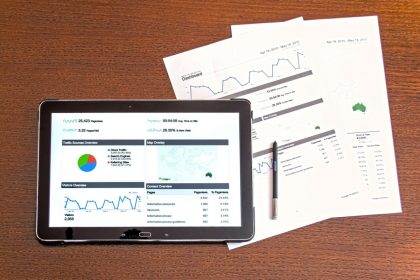Energy management is essential in today’s competitive business environment as global market changes occur more frequently. Whereas most organizations dedicate their attention to electricity usage, business gas usage is not given much consideration, although it contributes to organizational costs and environmental impacts. This guide explores all factors of business gas solutions, providing essential information to UK-based businesses to enhance their decision-making and efficiency of the gasses they use.
The Vital Role of Gas in Business Operations
Business Gas is an essential commodity in many business activities as it is used for heating large premises and operational processes, energy, and other processes in various sectors. Business gas usage is usually much more diverse in patterns and quantity than residential areas. It, therefore, requires sophisticated ways and means of acquiring and managing the gas.
Decoding the Business Gas Market Structure
At the heart of the structure are the gas suppliers, who buy gas from wholesale suppliers who, on their part, sell the gas to businesses. These suppliers are governed by rules laid down by Ofgem (Office of Gas and Electricity Markets), the independent energy regulator in the UK, with objectives of fair competition for the benefit of the customers. National Grid and regional distribution networks undertake gas transportation, making it a separate supply chain. Knowledge of this structure is essential to interpret the market and, thus, find the most effective ways of cost-effectiveness and optimisation.
The Impact of Energy Market Volatility on Business Gas Prices
The past few years have witnessed the energy markets experiencing more fluctuations, influencing business gas. Some causes of this zigzag movement include geo-political risks, supply disruptions, and a shift towards renewable energy. This instability is significant for businesses as it re-emphasises the need for a proper gas procurement plan. This may include processes like hedging, whereby firms ensure that they enter into futures contracts to buy future gas supplies at a fixed price to avoid high prices. This is a somewhat volatile market, and businesses can better cope with it if they understand the trends in the energy market.
Leveraging Technology for Optimal Gas Usage Management
Technological improvements, when it comes to the usage of gas resources, are erupting significant changes in the management level of businesses. While gas meters are already present in people’s homes, they are intelligent and offer information about usage in a real-time manner, as well as more detailed information regarding usage patterns.
These few providers are now able to provide analytics platforms that are based on AI and are capable of forecasting the demand for gas in the future from historical usage as well as from climatic conditions. Such tools can assist in determining the areas of inefficiency, utilisation of gas, and even management of energy usage with more efficiency. Therefore, when adopted into your energy management system, these technologies create a significant possibility for reducing costs and optimising operations.
The Growing Importance of Green Gas in Corporate Sustainability
As enterprises continue to adopt sustainability measures, green gas is gaining new popularity in the energy landscape. Biomethane, or green gas, is created from organic waste, replacing it with natural gas. However, at the moment, it is considerably more costly for businesses than traditional natural gas; however, green gas allows organisations to decrease their emissions without a massive overhaul of their current systems.
Similar to renewable electricity certificates, some suppliers are now offering ‘green gas’ certificates, which enable a business to state they use green gas regardless of whether it is imported into the premises or not. Whether or not green gas can become your key competitive advantage depends on the extent to which environmental sustainability pressure picks up.
Navigating Regulatory Changes in the Business Gas Sector
The business gas sector is a member of the regulated industry, with planned changes and amendments that intend to protect consumers, foster fair business competition, and create a low-carbon economy in the United Kingdom. Recent changes include updates to switching processes, which makes it easier for businesses to switch suppliers, and new rules concerning the protection of microbusinesses.
In the future, organisations should expect modifications associated with gas grid decarbonisation, such as hydrogen blending. Therefore, enterprises must keep up-to-date with these regulations and their implications as a means of compliance and identify new opportunities within the changing gas marketplace.
Conclusion: Embracing a Holistic Approach to Business Gas Management
We have seen that managing business gas in the current setting is more than just a case of seeking the best price per unit in the market. By constantly being aware of the prevailing market trends and embracing new technologies and advanced procurement best practices, firms can transform their arrangements for gas management into an opportunity to create a competitive advantage. That is why companies are ready for these changes, and internalising the mentioned complicities will have the best chance to succeed in a new business environment.








